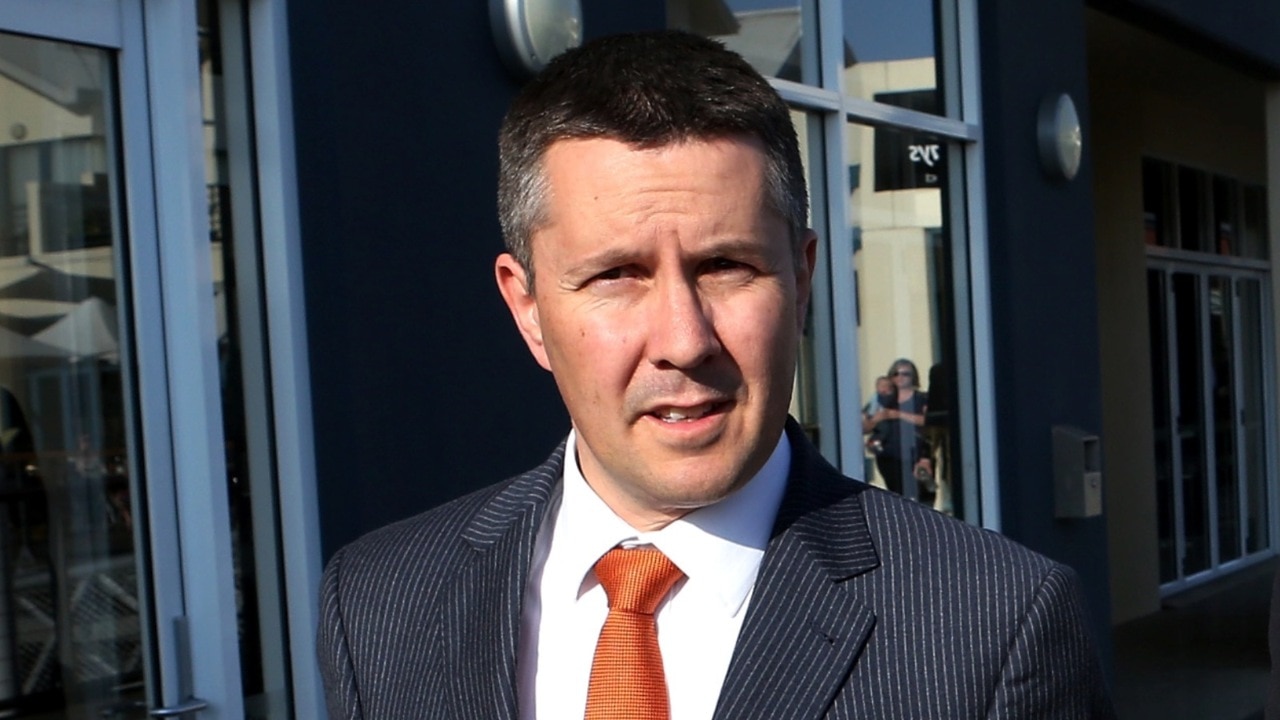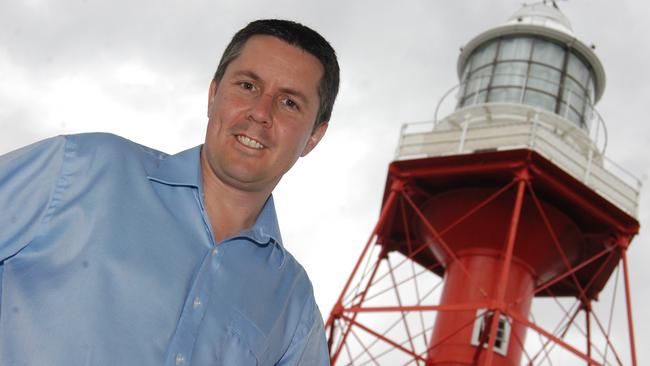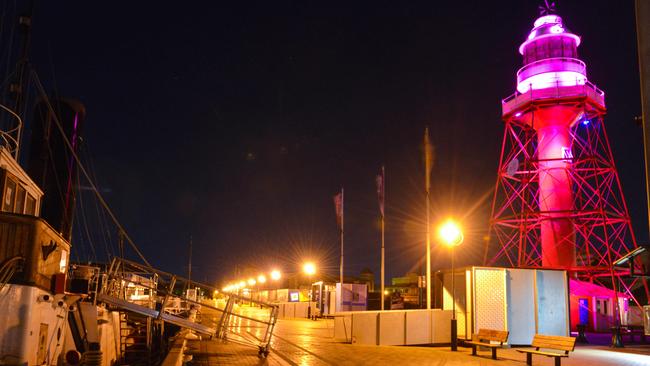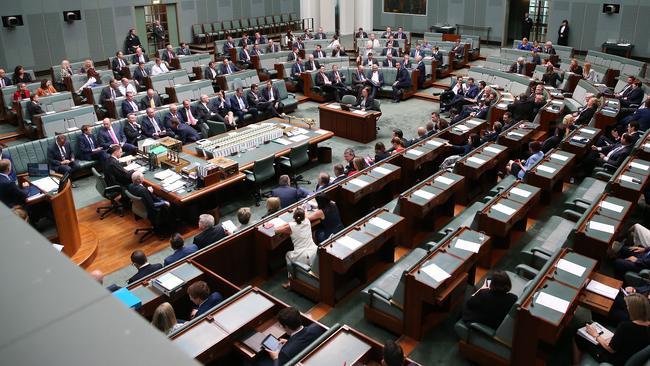David Penberthy: Port Adelaide electorate proposed cut is a depressing sign of South Australia’s falling national influence
THE proposed cut of the Port Adelaide electorate is genuinely depressing, David Penberthy writes – because it hits home SA’s diminishing influence on the nation as a whole.

Opinion
Don't miss out on the headlines from Opinion. Followed categories will be added to My News.
- Seat wiped off the map
- Two Labor MPs fight over one seat
- SA to lose a federal seat — but which MP will go?
- Labor tells AEC Christopher Pyne’s seat of Sturt should be cut
- Boundaries redraw could hurt Coalition at next election
THOSE of us with an instinctive disregard for politicians will be untroubled by the fact that South Australia is losing yet another federal seat, with the proposed abolition of the federal electorate of Port Adelaide.
It is actually a very important and genuinely depressing development. It is also one that should have nothing to do with the career aspirations of politicians, and everything to do with the interests of the voters.
Forget about the simmering tensions within the ALP over who ends up getting punted to accommodate the Australian Electoral Commission’s redraw. That is fodder for political tragics that has no bearing on anyone’s lives, save for a tiny handful of MPs and aspiring MPs. What really matters about this decision is the undeniable and bleak signal it sends about our state. It confirms that we are becoming more and more entrenched as a low-growth byway on the national stage. With limited economic activity and scant population growth, our representation gets another cut, as the eastern states’ presence at the national decision-making table continues to expand.

In the pre-State Bank 1980s, South Australia enjoyed a high watermark of national representation with 13 House of Representatives seats. That number was reduced to 12 with the abolition of the southern suburbs seat of Hawker, held for two decades by Labor’s Ralph Jacobi, ahead of Paul Keating’s victory over John Hewson at the 1993 Fightback election. The number fell again to 11 when the Elizabeth-based northern suburbs seat of Bonython was scrapped at the 2004 election, at which John Howard rolled Mark Latham. Just over a decade on, we are now down to 10 seats for the first time since the 1960s.
This continuing decline is the political expression of every bad economic and population indicator about our state — the job-related drift of our kids to the eastern states, with SA unable to offset the shortfall by attracting people from elsewhere either through the migration program or from intrastate migration.
As an added insult, the crude manner in which the AEC has gone about this redraw shows little regard for our state’s history. It is lamentable that of all the seats to go, it was Port Adelaide. Imagine if WA lost Fremantle or Victoria lost Melbourne Ports?

Port Adelaide holds a special place in the history of SA and deserves the recognition of its own federal electorate.
Not only will we have a diminished presence in Canberra through weight of numbers, the nature of the boundary changes is such that we no longer have any seriously marginal seats, save for the southern suburban seat of Boothby. With the intense concentration of marginals in western Sydney, suburban Melbourne and Brisbane, SA is already a dot on the political map, and one that just keeps getting smaller. Yet at the same time the ACT gains another seat, as does Victoria, meaning that when the next election is held South Australia will become even more drowned out.
All of this might sound abstract and ethereal but in policy terms it directly affects the manner in which Cabinets and prime ministers behave. During my stint in Canberra for The Advertiser, covering John Howard’s first term and his victory at the GST election from 1996 to 1998, my colleagues Matt Denholm, Phil Coorey and I would get summoned to Mr Howard’s office every couple of months for a one-on-one interview.
The consummate federalist, Mr Howard was at pains to pay frequent attention to a state such as SA, which at the time had very volatile marginal seats in Kingston, Adelaide, Hindmarsh and Makin. I can remember the PM dropping us frequent major announcements about the car industry, which culminated with his contentious decision to reject the Productivity Commission’s call for zero protection and opt for a tariff pause, much to the chagrin of his treasurer Peter Costello and the party’s other free trade purists.
Amid claims of vote-buying from eastern states MPs, Mr Howard backed the Alice Springs to Darwin railway link.
There were other times when he simply called us to the office to buy into a local issue that he knew was resonating with South Aussies, such as the abolition of the Australia Day Test, or the offence caused to Christian South Australians by the 1998 Adelaide Festival Poster featuring an Orthodox image of the Virgin Mary playing a piano accordion.
As a Sydneysider, Mr Howard’s frequent focus on our state was assisted by a frontbench that at various times in that period included Trish Worth, Alexander Downer, Nick Minchin, Ian McLachlan, Robert Hill, Amanda Vanstone, Alan Ferguson, meaning SA genuinely punched above its weight on the national stage.

Fast forward to 2018 and it feels like all the special attention SA has received of late might be a case of living on borrowed time. We stand to benefit from the subs deal, although due in part to the internal workings of the 2015 leadership wrangle between Tony Abbott and Malcolm Turnbull, where Mr Abbott was became more bullish about backing our state to shore up numbers among SA MPs.
We continue to receive a very generous chunk of the nation’s GST revenue, angering states like Western Australia which hand vast swathes of their revenue back into national coffers for redistribution. We received almost $900 million for the South Rd upgrade in the formerly marginal seat of Hindmarsh. Our diminished voice in Canberra means there is less incentive for this type of generosity to continue.
The brutal reality is that politics is ultimately about staying in power. If you’ve got a billion bucks to spend, why waste it on a handful of safe seats in SA when there’s marginals to be won in Sydney and Melbourne?
David Penberthy hosts breakfasts on FiveAA with Will Goodings.



